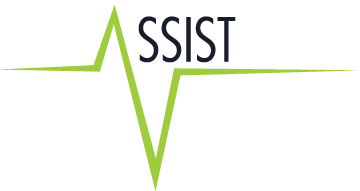Implantables Workshop 2024
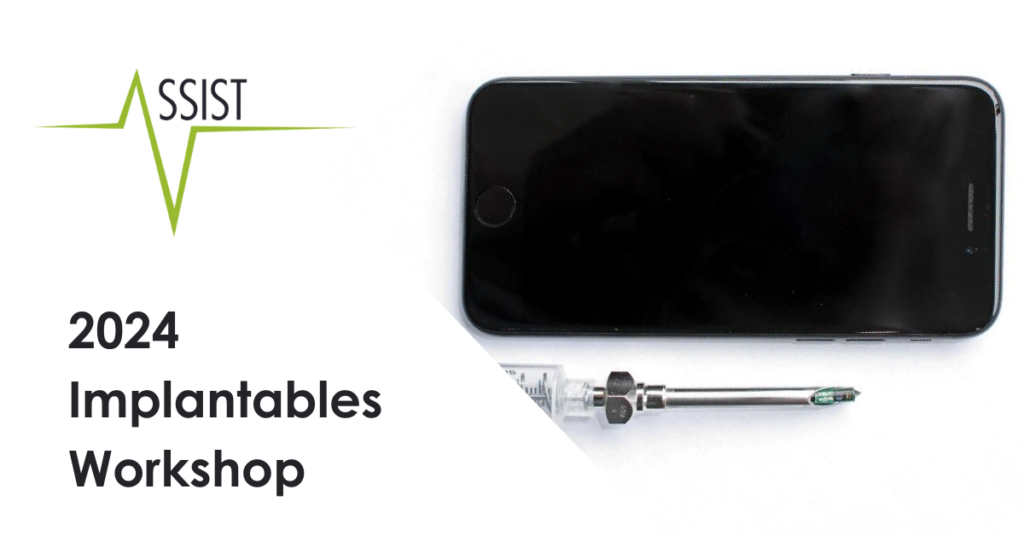
Join us for the second NSF Nanosystems Engineering Research Center for Advanced Self-Powered Systems of Integrated Sensors and Technologies (ASSIST) Implantables Workshop on May 8, 2024, from noon to 4 p.m.
The focus of this VIRTUAL multi-phased engineering workshop is to determine future strategies for advancing the transition from mobile and wearable sensor systems to implantable and injectable devices to guide NSF ERCs to enable next-generation technologies. Specifically, the workshop will define the state-of-the-art, necessary innovations, and future challenges facing the research and development for applications in understanding human physiology, pathophysiology, and behavior. The workshop will cover all relevant topics including electroceuticals, flexible sensors and novel electrode materials, biophotonic recording and stimulation, magnetic actuation, ultra-low-power circuits, bioreactors, and ultrasonic energy transfer for battery-free operation.
Register NOW to get your Zoom link! Local attendees in the Raleigh area can meet in NC State Monteith Research Center (MRC) Room 454 to attend in a group setting. Pizza lunch and refreshments will be provided starting at 11:30 am.
All the NSF ERCs are invited for this workshop.
Event Agenda
| Speaker/Affiliation | Talk Title | Start Time (EDT) |
|---|---|---|
| Alper Bozkurt, Veena Misra NC State University | Welcome + ASSIST Update | 12 Noon |
| Firat Yazicioglu Galvani Bioelectronics | Keynote Presentation: Bioelectronics – where technology meets biology | 12:15 p.m. |
| Abraham Vazquez-Guardado NC State University | Implantable wireless biomedical devices for functional bio-interfacing with the nervous system | 1 p.m. |
| Jacob Robinson Rice University | Miniature Neurotech: Concept to Commercialization | 1:20 p.m. |
| Ömer Oralkan NC State University | Capacitive Micromachined Ultrasonic Transducers Operating in Constant-Charge Mode for Wireless Power Transfer to Implantable Devices | 1:40 p.m. |
| Break | 2 p.m. | |
| Azita Emami Caltech | Energy-efficient biomedical devices for sensing and surgical navigation | 2:15 p.m. |
| Jack Judy University of Florida | Implantable High-Channel-Density-Connector Technology | 2:35 p.m. |
| Mehdi Kiani Penn State University | Advanced Techniques for Wireless Power and Data Transfer to Millimeter-Scale Biomedical Implants | 2:55 p.m. |
| Duygu Kuzum UC San Diego | Innovating Beyond Electrophysiology: Multimodal Neural Interfaces and Computational Co-Design | 3:15 p.m. |
| Shuvo Roy UC San Francisco | Biocompatibility Considerations for Long-Term Implantable Biomedical Microsystems | 3:35 p.m. |
| Wrap-Up | 3:55 p.m. |
Firat Yazicioglu: Bioelectronics – where technology meets biology
Bioelectronic medicines, a new treatment modality that modulates signals in peripheral nerves, hold the promise to sit alongside today’s molecular medicines and neuromodulation devices. Bioelectronics uses miniature therapeutic implants to control organs and systems central in disease and could make medicines with improved precision, personalization, adherence, and ultimately access. This presentation will discuss the promise of Bioelectronics therapies and how they harnesses emerging technologies for the benefit of patients. An introduction to modulation of peripheral nerves will be presented, existing neuromodulation systems and their technologies will be discussed, and emerging/enabling technologies will be highlighted.
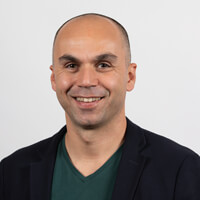
Firat Yazicioglu serves as Vice President of Translational Sciences and Engineering at Galvani Bioelectronics, a joint venture between GSK (GlaxoSmithKline) and Verily (former Google Lifesciences). He joined GSK Bioelectronics in 2015 after spending 13 years at imec, Europe’s largest independent research center in microelectronics and nanoelectronics. He has developed medical devices and technologies for wearable and implantable applications. With a Ph.D. from KU Leuven in Belgium, Firat has authored more than 100 peer-reviewed publications along with more than 30 patents, including a book on low-power biomedical microsystems. He has served on the technical program committees of European Solid State Circuits Conf (ESSCIRC), International Solid State Circuits Conf (ISSCC), and Biomedical Circuits and Systems Conf (BioCAS).
Abraham Vázquez-Guardado: Implantable wireless biomedical devices for functional bio-interfacing with the nervous system
Sensing and stimulation serve as the fundamental mechanisms for establishing bidirectional connections with living organisms. These interfaces enable us to investigate medical disorders, evaluate our current health status, and implement efficient programmable stimulators for therapeutic relief, among other impactful applications. Whether our goal is to interface with the peripheral or central nervous system, organs, or the broader biochemistry, the development of bidirectional interfaces holds immense scientific, medical, and engineering relevance. In this talk I will present wireless implantable devices, some of them battery-free, designed to interface with the nervous system via stimulation and/or sensing. These examples illustrate promising avenues for the development of bioengineered artificial interfaces that support biomedical and neuroscience research, but ultimately open the path towards potential translation into devices for use in humans in the near future.
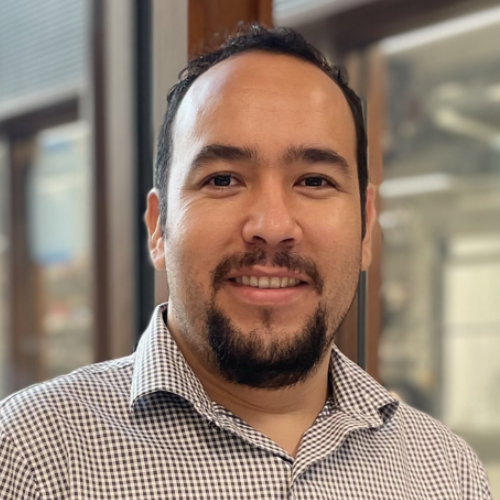
Dr. Abraham Vázquez-Guardado is an assistant professor in the Electrical and Computer Engineering Department at North Carolina State University. He received his Ph.D. in Optics and Photonics from the College of Optics and Photonics (CREOL) in the University of Central Florida in 2018, and his Postdoctoral training from the Querrey Simpson Institute for Bioelectronics at Northwestern University (2019-2022). His research interests extend from the fundamental development of multimodal bidirectional nanophotonic and optoelectronic bio-interfaces to the deployment of biomedical devices for applications in biosensing, biomedical and neuroscience research, clinical diagnostics, and unsupervised feedback-controlled interfaces.
Jacob Robinson: Miniature Neurotech: Concept to Commercialization
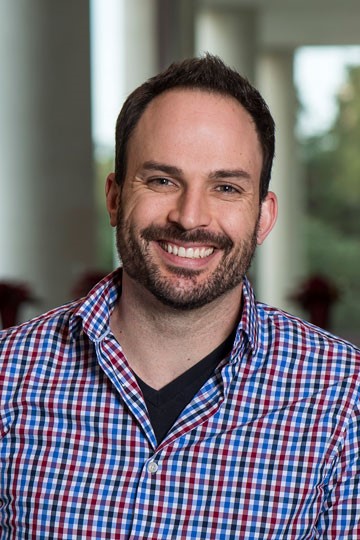
Jacob Robinson is a Professor in Electrical & Computer Engineering and Bioengineering at Rice University where his group develops miniature technologies to manipulate and monitor neural circuit activity. Prof. Robinson received a B.S. in Physics from UCLA, a Ph.D. in Applied Physics from Cornell University, and completed Postdoctoral training in the Chemistry Department at Harvard. He previously served as the co-chair of the IEEE Brain Initiative and a core member of the IEEE Brain Neuroethics working group and is currently a member of the IEEE EMBS AdCom. In addition to his academic work, Dr. Robinson is the co-founder and CEO of Motif Neurotech, which is developing minimally invasive bioelectronics to treat mental health disorders.
Ömer Oralkan: Capacitive Micromachined Ultrasonic Transducers Operating in Constant-Charge Mode for Wireless Power Transfer to Implantable Devices
Ultrasonic microsystems enabled by the capacitive micromachined ultrasonic transducer (CMUT) technology have been subject to extensive research for the last two decades and as a result reached to the market for medical ultrasound imaging. In recent years, advantages offered by this technology, such as the ability to make lithographically defined large arrays as well as low-profile, compact transducers, and closely integrating them with supporting electronic circuits attracted attention from other application domains including therapeutics and sensing. An emerging application is the
use of ultrasound to implement power and communication links to implantable medical devices (IMDs). CMUTs typically operate with a DC bias. However, pre-charging can eliminate the need for the DC bias to facilitate use of CMUTs operating in constant-charge mode for energy transfer to IMDs. We designed a pre-charged CMUT structure with a built-in charge storage capacitor. In this novel design, a floating electrode is formed between the top and bottom electrodes. Charging is accomplished by directly contacting the floating electrode to the bottom electrode. The initial results show that the proposed structure can store electrical charges without leakage, and make the operation without a DC bias possible.
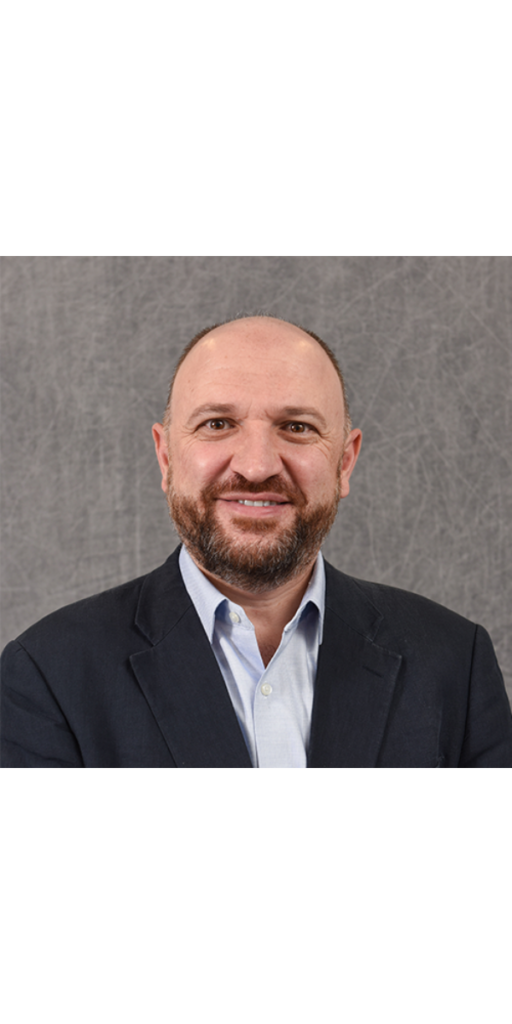
Ömer Oralkan received the B.S. degree from Bilkent University, Ankara, Turkey, in 1995, the M.S. degree from Clemson University, Clemson, SC, in 1997, and the Ph.D. degree from Stanford University, Stanford, CA, in 2004, all in electrical engineering. He was a Research Associate (2004-2007) and then a Senior Research Associate (2007-2011) in the E. L. Ginzton Laboratory at Stanford University. In 2012, he joined North Carolina State University, Raleigh, where he is now a Professor of Electrical and Computer Engineering. His current research focuses on developing devices and
systems for ultrasound imaging, photoacoustic imaging, image-guided therapy, biological and chemical sensing, ultrasound neural stimulation, and ultrasound-based human-computer interfaces.
Dr. Oralkan was the recipient of the 2022 IEEE Sensors Council Technical Achievement Award in Sensor Systems/Networks – Advanced Career, 2016 William F. Lane Outstanding Teacher Award at NC State, 2013 DARPA Young Faculty Award, and 2002 Outstanding Paper Award of the IEEE Ultrasonics, Ferroelectrics, and Frequency Control Society. He is the Editor-in-Chief of the IEEE Open Journal of Ultrasonics, Ferroelectrics and Frequency Control and serves on the Technical Program Committee
of the IEEE International Ultrasonics Symposium. Dr. Oralkan is a Fellow of the IEEE and the AIMBE.
Azita Emami: Energy-efficient biomedical devices for sensing and surgical navigation
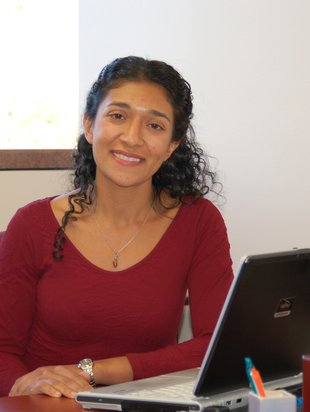
Azita Emami (Senior Member, IEEE) received the B.S. degree from the Sharif University of Technology, Tehran, Iran, in 1996, and the M.S. and Ph.D. degrees in electrical engineering from Stanford University, Stanford, CA, USA, in 1999 and 2004, respectively.,From 2004 to 2006, she was with the IBM T. J. Watson Research Center, Yorktown Heights, NY, USA. She joined the California Institute of Technology (Caltech), Pasadena, CA, USA, in 2007, where she is currently the Andrew and Peggy Cherng Professor of electrical engineering and medical engineering and the Director of the Center for Sensing to Intelligence. She also serves as the Executive Officer (Head) of Department of Electrical Engineering. Her current research interests include integrated circuits and systems, integrated photonics, wearable and implantable devices for neural recording, neural stimulation, sensing, and drug delivery.,Dr. Emami was an IEEE Solid-State Circuits Society (SSCS) Distinguished Lecturer from 2017 to 2018. From 2016 to 2021, she was an Associate Editor of the IEEE Journal of Solid-State Circuits (JSSC).
Jack Judy: Implantable High-Channel-Density-Connector Technology

Dr. Judy received his B.S.E.E. degree with summa cum laude honors from the University of Minnesota in 1989, and an M.S. and Ph.D. from the University of California, Berkeley, in 1994 and 1996. Dr. Jack Judy joined ECE as the Intel Nanotechnology Endowed Chair/NIMET Director. Dr. Judy was formerly a program manager in the Microsystems Technology Office of the Defense Advanced Research Projects Agency (DARPA). He was serving in this capacity while on leave from his faculty position in the ECE Department at UCLA. While at UCLA, he served as Director of the NeuroEngineering Program, the Nanoelectronics Research Facility, and the Microfabrication Laboratory. Dr. Judy has received the prestigious National Science Foundation Career Award and the Okawa Foundation Award.
Dr. Judy’s research interests include the development of novel micro/nanoscale systems and their use in a wide variety of engineering and biomedical applications.
For patients to benefit from state-of-the-art high-channel-count neural-interface technology, translatable implant packaging technology is needed to support it. Despite advances in implant electronics, batteries, enclosures, and even high-feedthrough-count and high-feedthrough-density headers, the lack of advancement in implant connector technology has imposed an often unacceptable tradeoff between high interface channel count and the ability to disconnect and reconnect implanted interface leads from packaged and implanted electronics. Specifically, it would be of great value to enable battery changes, implant electronics replacement, or implant electronics upgrades to be performed without disturbing high-channel-count thin-film interfaces that have become integrated into delicate and sensitive neural tissue. We present techniques to revolutionize implantable connector technology by creating miniature, reliable, and high-channel-density connectors for high-channel-count neural interfaces produced with thin-film microfabrication technology.
Mehdi Kiani: Advanced Techniques for Wireless Power and Data Transfer to Millimeter-Scale Biomedical Implants
Fully wireless biomedical implants at millimeter scale with closed-loop operation (sensing/recording and actuation/stimulation) are critical in basic research and clinical applications. They can potentially replace pharmacological approaches and offer revolutionary treatments known as bioelectronic medicine for conditions such as epilepsy, cardiovascular diseases, gastroparesis, diabetes, to name a few, that require monitoring and modulation of
signaling patterns in the nervous system and/or different organs. For chronic operation of millimeter-scale implants, their fully wireless interrogation (powering and bidirectional communication) is necessary as using tethered wires and batteries can cause infections, limited operation, and need for frequent charging or replacement. Several modalities currently exist for wireless interrogation of medical devices: inductive, capacitive, ultrasound, and magnetoelectric technologies. In this talk, I will present advanced techniques for wireless power and data transfer to millimeter-scale biomedical implants. In particular, I will present a hybrid magnetic-ultrasonic wireless interrogation platform (called MagSonic hereafter) with simultaneous power reception using one modality (magnetic or ultrasound) and uplink data transmission with the other (or power reception using both magnetic and ultrasound modalities).
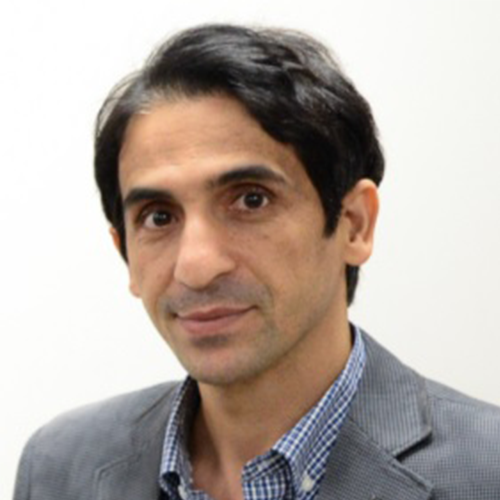
Dr. Kiani received his Ph.D. degree in Electrical and Computer Engineering from the Georgia Institute of Technology in 2014. He joined the faculty of the School of Electrical Engineering and Computer Science at the Pennsylvania State University in August 2014 where he is currently an Associate Professor. His research interests are in the multidisciplinary areas of analog, mixed-signal, and power-management integrated circuits; ultrasound; and wireless power/data transfer and energy harvesting for wireless implantable medical devices and neural interfaces.
Duygu Kuzum: Innovating Beyond Electrophysiology: Multimodal Neural Interfaces and Computational Co-Design
The next leap in implantable neural interfaces requires technological advances in materials, devices, and computing paradigms. Multimodal approaches integrating optical and electrical sensing modalities can overcome spatiotemporal resolution limits of neural sensing as well as open up new avenues for non-invasive neural recording. Integration of sensing, computation and memory on a single array can enable real-time processing of neural signals for compact, low-power and high-throughput brain machine interfaces. Here, I will present this vision, its challenges, and discuss recent advances in
the areas of transparent neural interfaces for multimodal recordings, neuromorphic approaches for on-chip neural processing and computational co-design at the system level for minimally invasive neural interfaces.
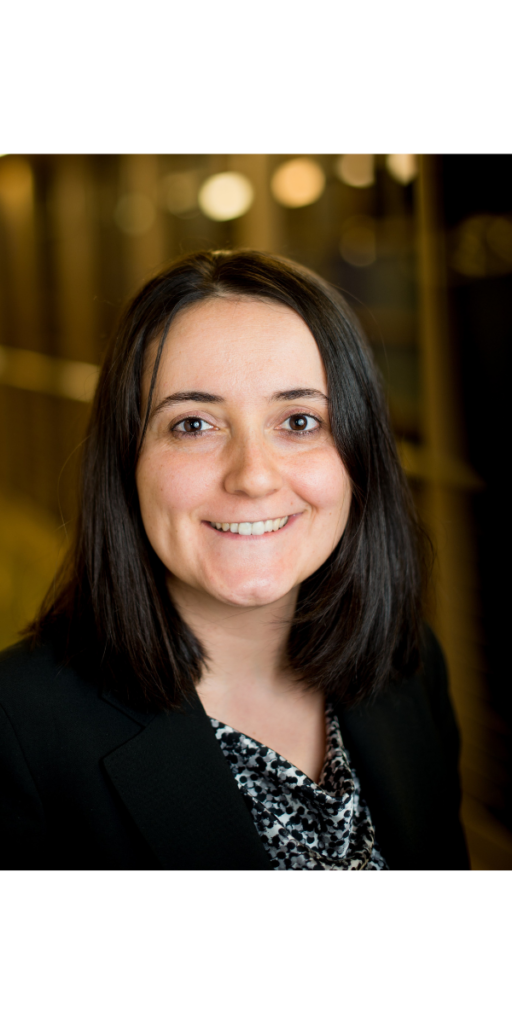
Duygu Kuzum received her Ph.D in Electrical Engineering from Stanford University in 2010. She is currently an Associate Professor in Electrical and Computer Engineering Department at University of California, San Diego. Her group applies innovations in nanoelectronics to develop new technologies, which will help to better understand circuit-level computation in the brain. Her research also focuses on development of nanoelectronic synaptic devices for energy-efficient neuro-inspired computing. She is the author or coauthor of over 50 journal and conference papers. She was a recipient of a number of awards, including Texas Instruments Fellowship and Intel Foundation Fellowship, Penn Neuroscience Pilot Innovative Research Award (2014), Innovators under 35 (TR35) by MIT Technology Review (2014), ONR Young Investigator Award (2016), IEEE Nanotechnology Council Young Investigator Award (2017), NSF Career Award (2018), NIH NIBIB Trailblazer Award (2018), NIH New Innovator Award (2020), and Joan and Irwin Jacobs-Kavli Foundation Chancellor’s Endowed Faculty Fellowship for Engineering the Brain and the Mind (2023).
Shuvo Roy: Biocompatibility Considerations for Long-Term Implantable Biomedical Microsystems
The tremendous technical promise of biomedical microsystems has yet to be realized in medicine. Despite the great advances in engineering, there is a serious dearth of implantable medical devices for long-term monitoring or treatment. To enhance the successful translation of fundamental science discoveries to patients, the compatibility of device technology with clinical needs must be considered starting at the earliest stages. The identification of suitable bio-compatible materials and techniques as well understanding of regulatory and reimbursement issues is critical to overcoming the barriers that hinder commercialization and adoption. This talk will present case studies showcasing possible pathways that can advance next generation medical device concepts towards the clinical setting.

Dr. Roy is a bioengineer whose research is dedicated to the development of biomedical devices
to address unmet clinical needs through the application of microelectromechanical systems
(MEMS) and related nanotechnology. He is the director of the Biodesign Laboratory and held
the Harry Wm. and Diana V. Hind Distinguished Professorship in Pharmaceutical Sciences II in
the University of California, San Francisco (UCSF) School of Pharmacy and is a faculty affiliate
of the California Institute for Quantitative Biosciences (QB3). His research focuses on
fabrication of silicon membranes, surface modification of MEMS substrates to enhance
biocompatibility, and wireless sensors for physiological monitoring. He is the technical director
of The Kidney Project, a national research project to create a small, surgically implanted, and
free-standing bioartificial kidney to treat end-stage renal disease (ESRD). In addition, he is a
founding member of the UCSF Pediatric Device Consortium, which has a mission to accelerate
the development of innovative devices for children’s health. He is the co-leading UCSF’s
Surgical Innovations program, an interdepartmental initiative between the Departments of
Surgery and Bioengineering and Therapeutic Sciences, to accelerate the translation of medical
technologies. Before joining UCSF in 2008, Dr. Roy co-directed the BioMEMS Laboratory in
the Department of Biomedical Engineering at Cleveland Clinic in Cleveland, Ohio. He has a
PhD in electrical engineering and computer science from Case Western Reserve University in
Cleveland, Ohio. He is the Faculty Director of the Master of Translational Medicine Program
(MTM), a joint program offered by the Department of Bioengineering at UC Berkeley and the
Department of Bioengineering and Therapeutic Sciences at UCSF. He is currently the
instructor of record for MTM core courses at UCSF.
